ESCAPE
Tasting the koeksuster economy of the Karoo
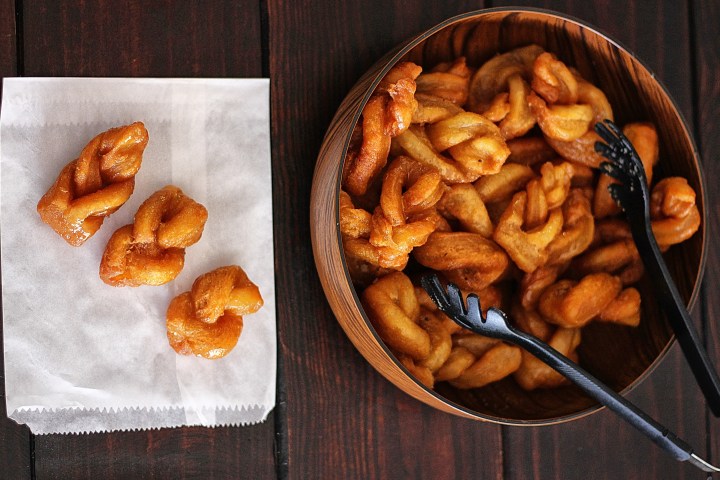
Small-town bakers have become a critical financial lifeline for their families and communities.
Long before dawn’s early light streaks the Karoo skies, dozens of kitchens in the Eastern Cape town of Cradock are already on the buzz.
Activities are at fever pitch in the cool, quiet hours before daybreak down in Beeren Street near the Great Fish River, where Rika and husband Francois “Vossie” de Vos have been hard at work.
She’s doing the mini quiches, chicken pies, sausage rolls, worsie-in-a-doek (pastry around a small cheese griller) and other savouries that will be the first of their products to be delivered at the town’s beloved home industries shop, Dit en Dat on Adderley Street.
Vossie is baking the vanilla and chocolate cakes and putting them on the cooling racks, ready for Rika to ice. She has rolled out the milk tart pastry and is doing the carrot cakes next.
Over on Impala Street in Michausdal township, Ellen Taks has also been busy for more than an hour. In her oven is the latest batch of cupcakes. Meanwhile, she’s mixing a cinnamon-flavoured dough for the Malay-style koesisters (different in spelling, shape and flavour from the plaited koeksusters) that have made her a minor celebrity in town.
Taste one and you’ll see why.
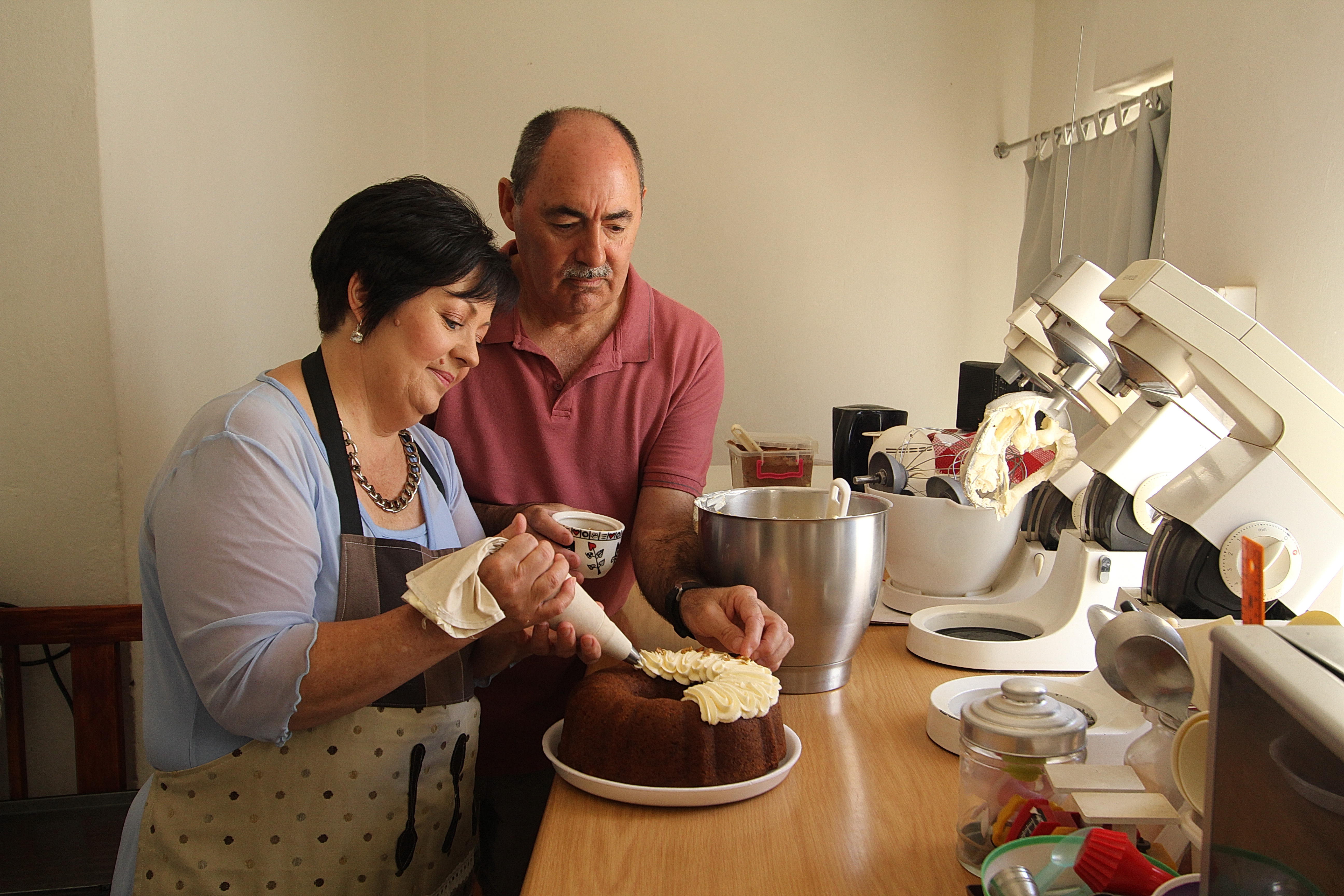
Anything that is labelled #9 and sold from Dit en Dat in Cradock is baked and supplied by Rika de Vos and her husband Francois (Vossie). (Photo: Chris Marais)
King of the carrot cakes
Tannie Betsie van Jaarsveld celebrated her 81st birthday recently. Nevertheless by 4am her first baksel (batch) of cakes is cooling on her stoep, under protective gauze. She usually bakes and ices 16 cakes a day and then, when occasion demands, she’ll also be making rusks and kleinkoekies (homemade biscuits).
Maswazandile “Maswazi” Mabusela, the breakfast chef at the Victoria Manor (and the local Carrot Cake King), is up and preparing to head early to the hotel kitchen to try out a new recipe he has devised with bread-mad manager David Ker.
This morning he’ll be making bagels, using a sourdough starter. Later, there’ll be a birthday party, for which he’s been asked to produce his special rosemary, lemon and olive oil cake.
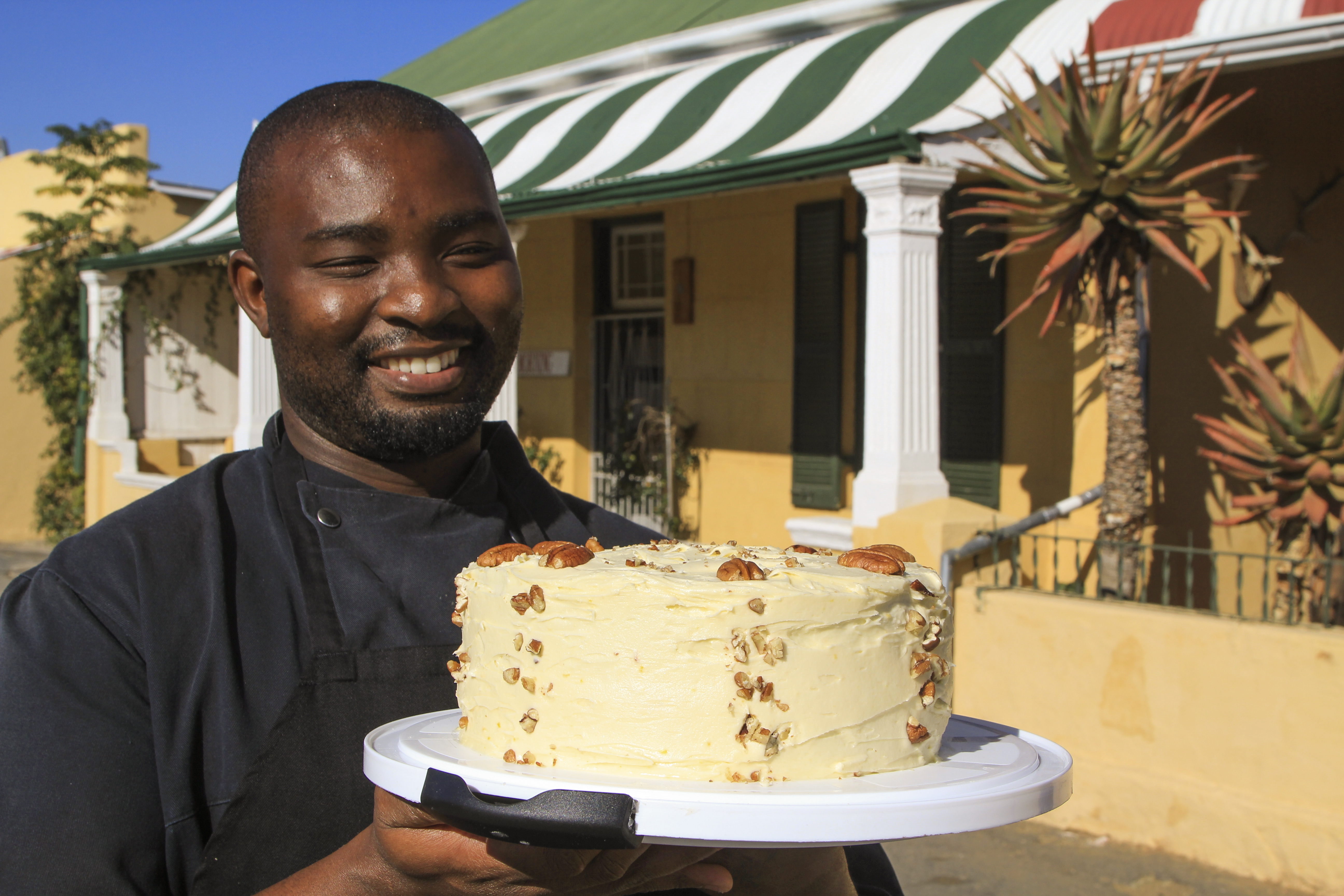
Maswazandile ‘Maswazi’ Mabusela, breakfast chef at the Tuishuise and Victoria Manor in Cradock, became locally famous for the carrot cakes he used to make in his spare time. (Photo: Chris Marais)
The only serious baker in town still sleeping at 4am is Annemarie Rapp, who runs another home industries store in Cradock called D’licious.
Unlike the others, she’s a night owl, baking until midnight and often into the early hours. Annemarie is known for her milk tart, chocolate cake, Greek shortcake and cheesecake. Her three daughters – Inge, Hildegard and Ulrike – each have their own specialties on offer there.
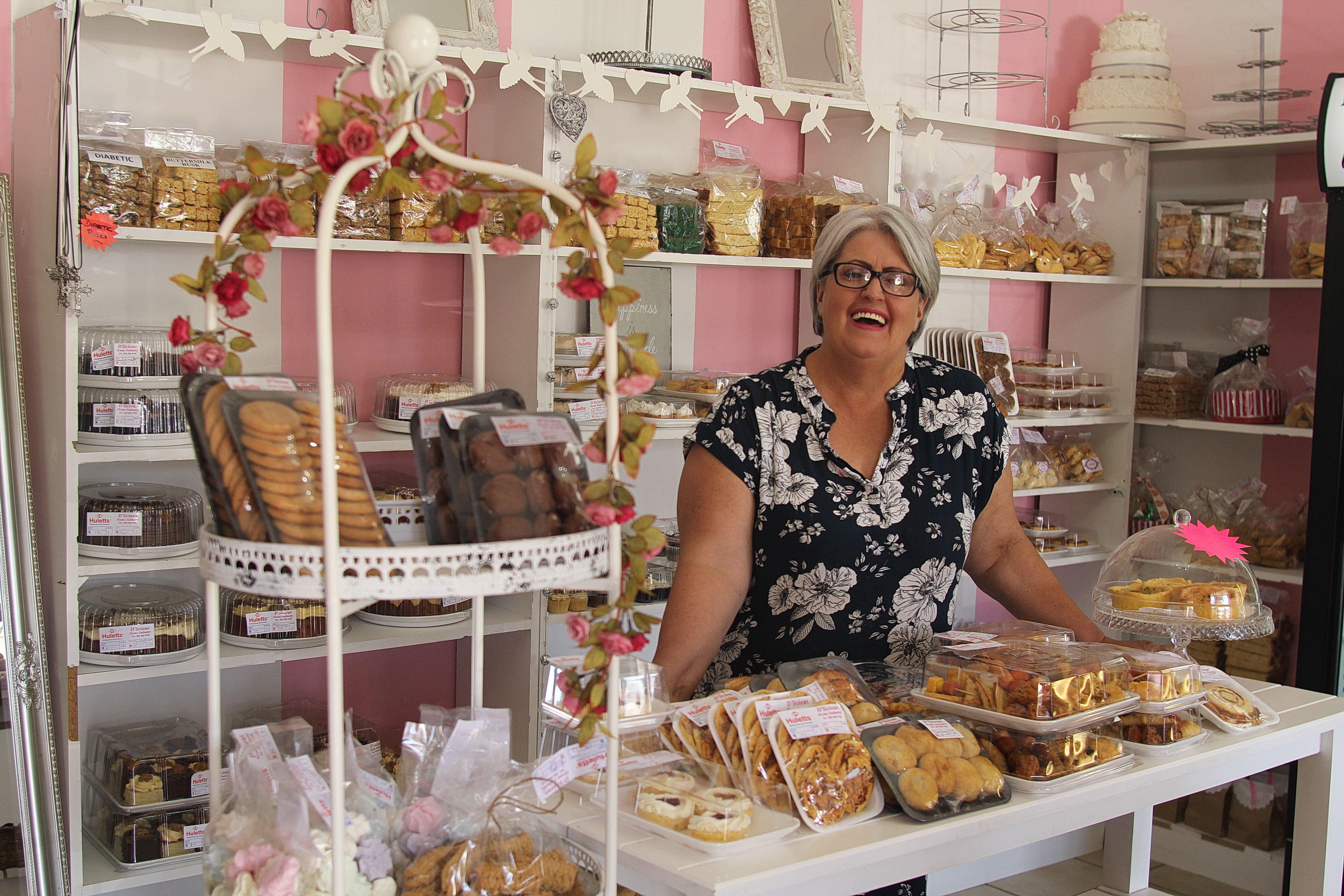
Annemarie Rapp of D’licious Home Industry in Cradock. (Photo: Chris Marais)
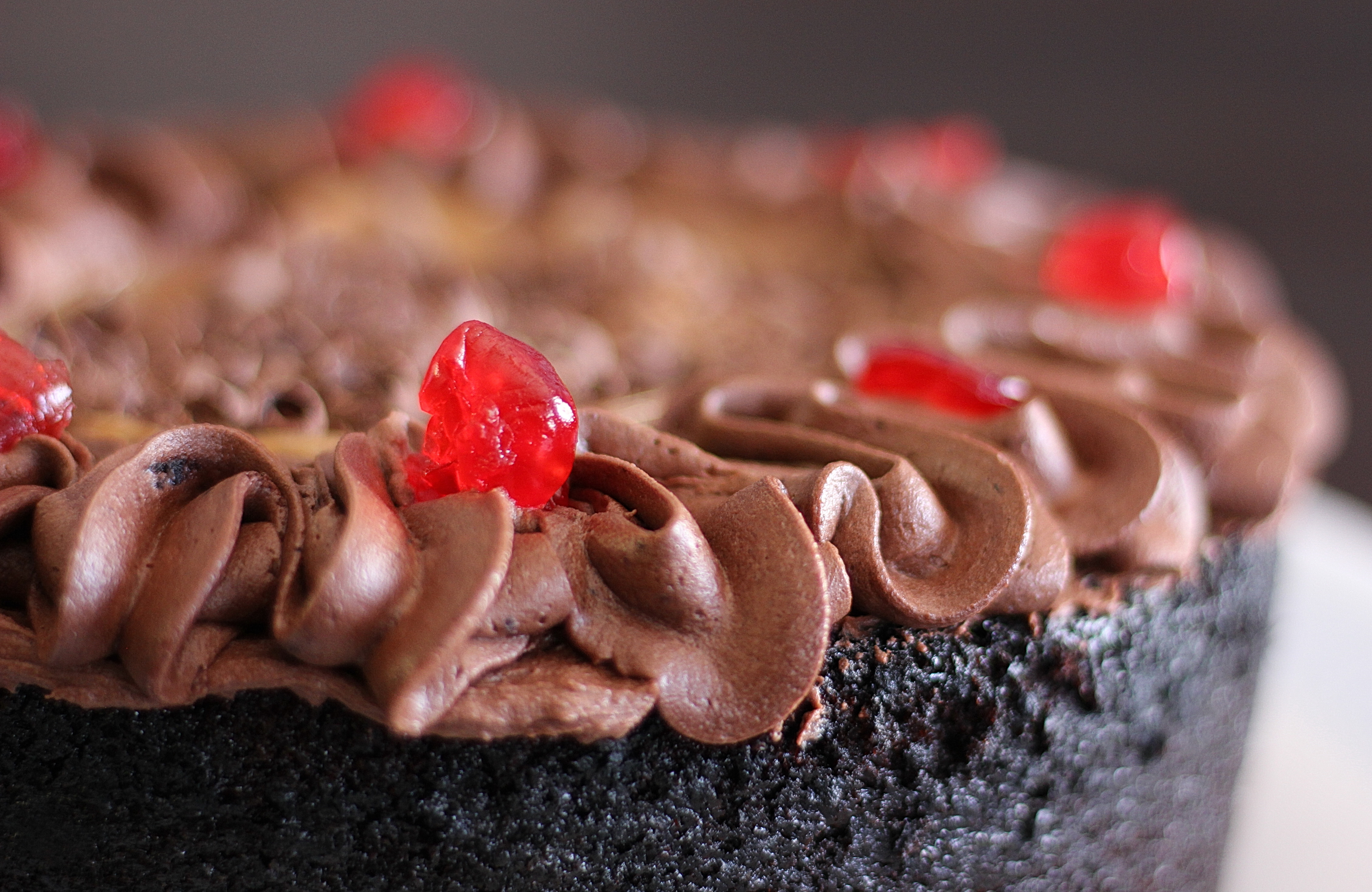
A freshly baked and iced coffee cake from D’licious. (Photo: Chris Marais)
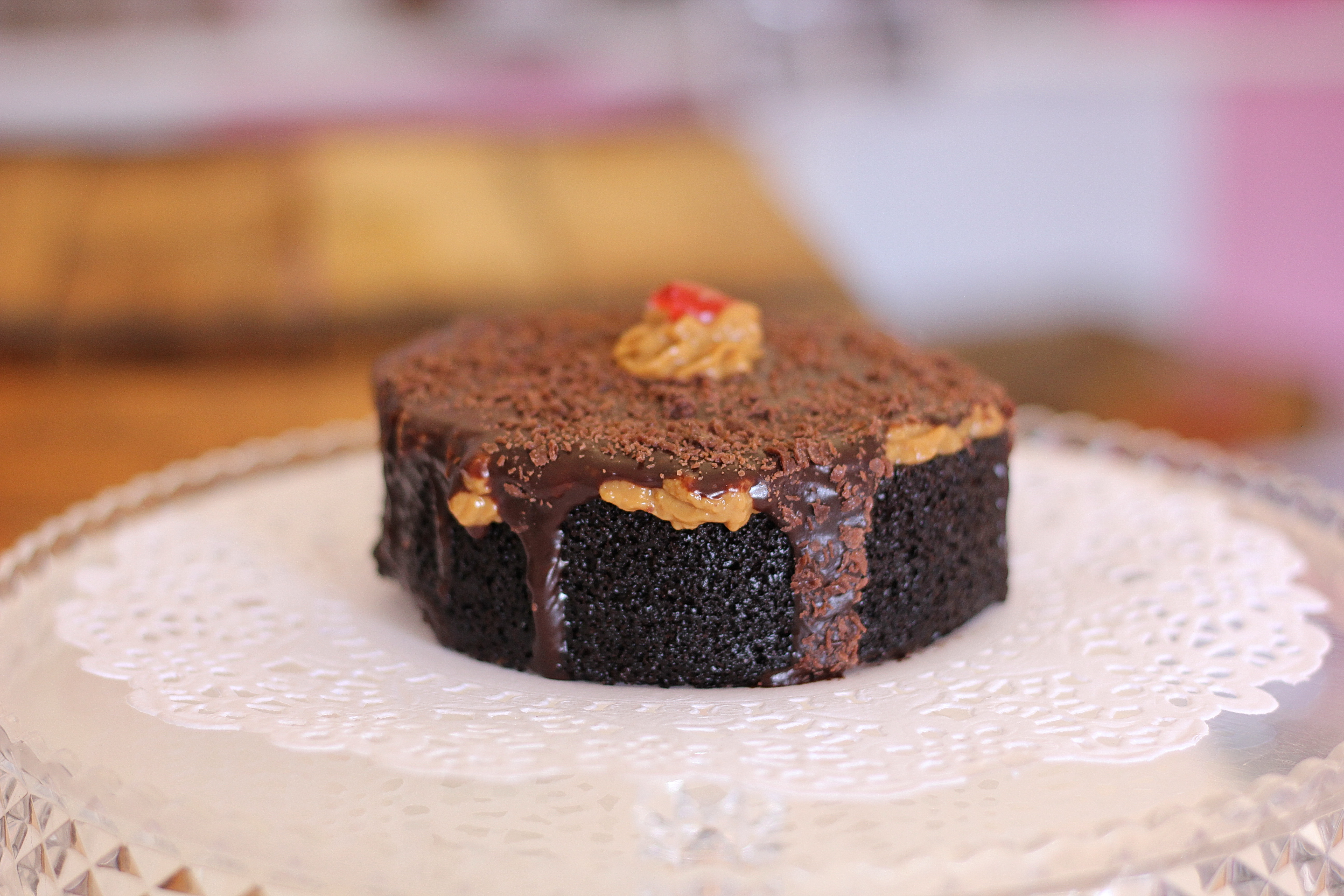
Small and intensely flavoured – the chocolate mudcake from D’licious. (Photo: Chris Marais)
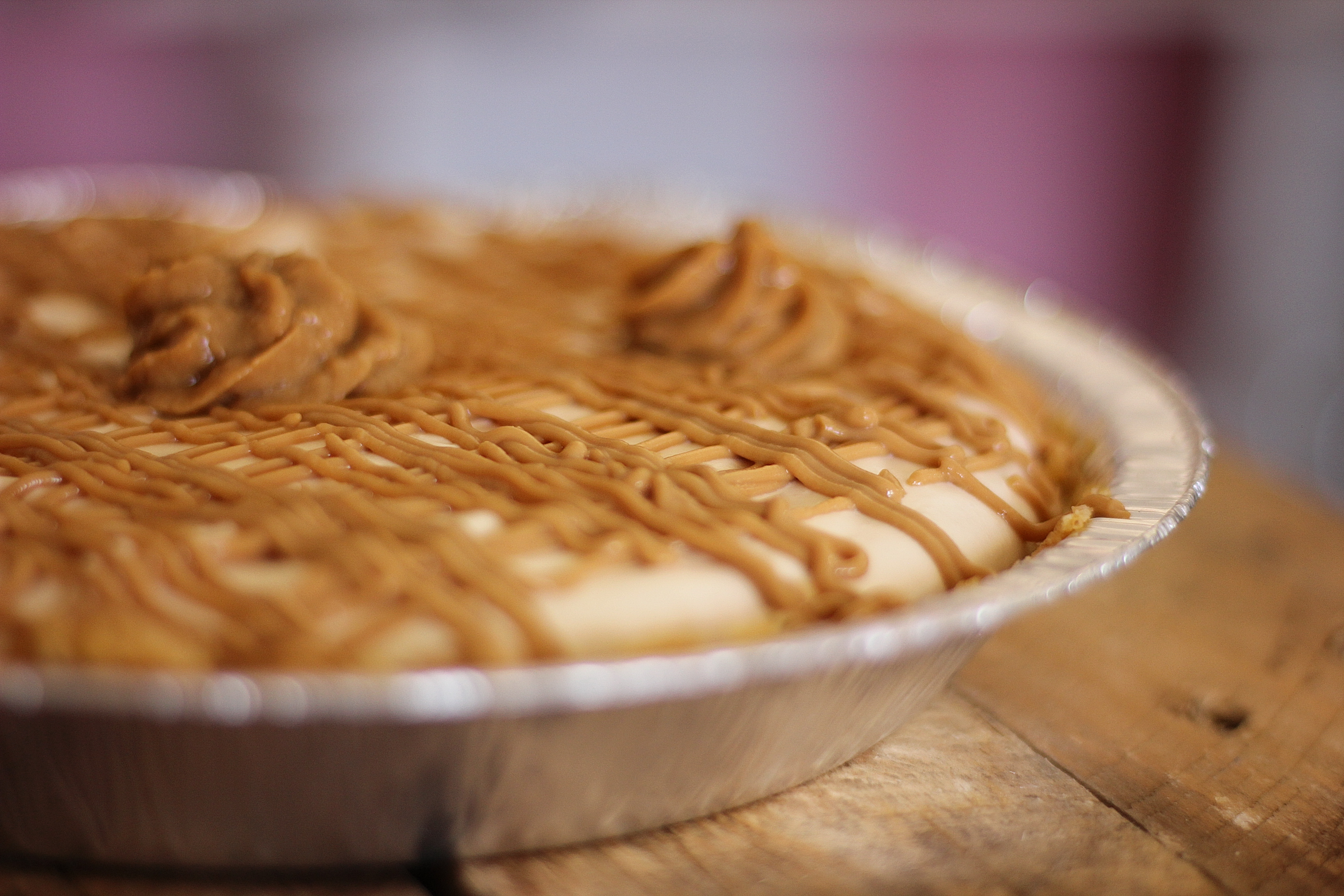
People in the platteland have learnt to make a plan with long-life items in the pantry – which is how Cremora and Caramel Tart originated. (Photo: Chris Marais)
Oldest home industry
The grande dame of home industry around here remains Dit en Dat, which celebrated its 50th birthday last year. This is the oldest cooperative home industry in the Eastern Cape and among the very first to be established in South Africa.
“It began in July 1968, during a terrible drought, as a way of helping the farmer’s wives make some extra money,” explains Rika de Vos. She, with her husband Vossie, is the most prolific baker at Dit en Dat.
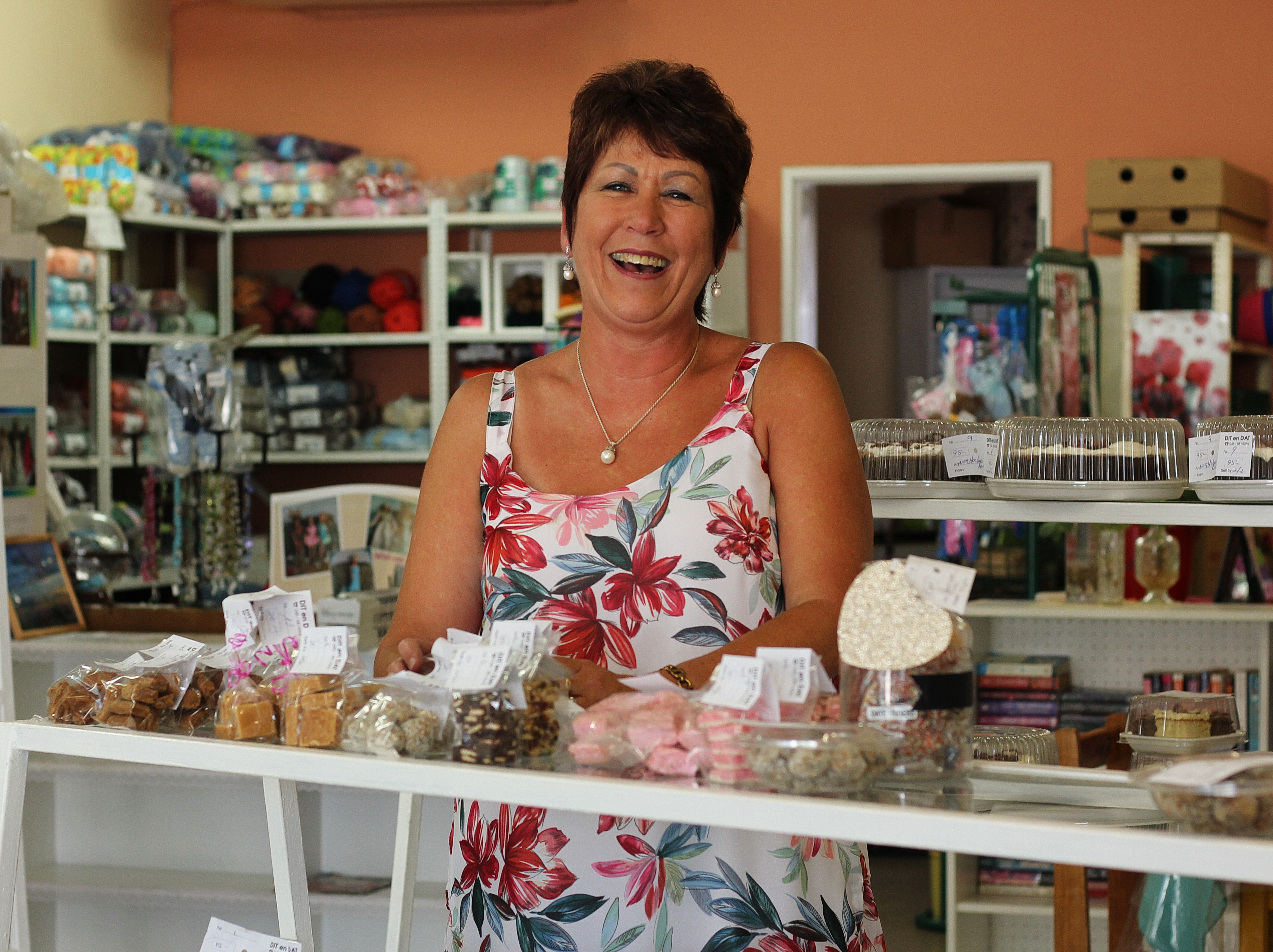
Chrismarie Opperman, current chair of the Dit en Dat home industries cooperative. Apart from homemade goodies, you could also buy knitted goods and even a bunch of flowers. (Photo: Chris Marais)
The women started by bringing in vegetables, fruit, rusks, homemade biscuits and cakes to a humble little building on one of Cradock’s side-streets. But when they moved to a shop on Adderley Street, one of Cradock’s busy thoroughfares, their business boomed.
The success of cooks and bakers leans heavily on Cradock’s very active social life. If it’s not a child’s birthday, then it’s a bridge tournament or a tennis match, book club, garden club or a birthday, christening, wedding, funeral or anniversary.
For every occasion, there has to be a full line-up of tasty treats. And there’s just no scooting off to Woolies for stuff either.
“I think you’ll find a lot of women like me who have become widows start baking,” says Tannie Betsie. “It keeps the money coming in, and it keeps you busy.”
The home baking network
But a home industry centre supports more than a bunch of bakers. Chrismarie Opperman is a local farmer’s wife who doesn’t bake but brings in whatever vegetables are in season, along with biltong, droëwors and chilli bites.
“I get a real kick from earning my own money from what I sell here.”
Home industry cooperatives (tuisnywerhede) are now common in South Africa. Every dorp seems to have one, and even the big cities often sport a shop with home-baked goods in most malls.
They are so common that they are taken for granted, but seem to be uniquely South African. There are home bakers all over the world, but typically they sell their goods at a weekly market.
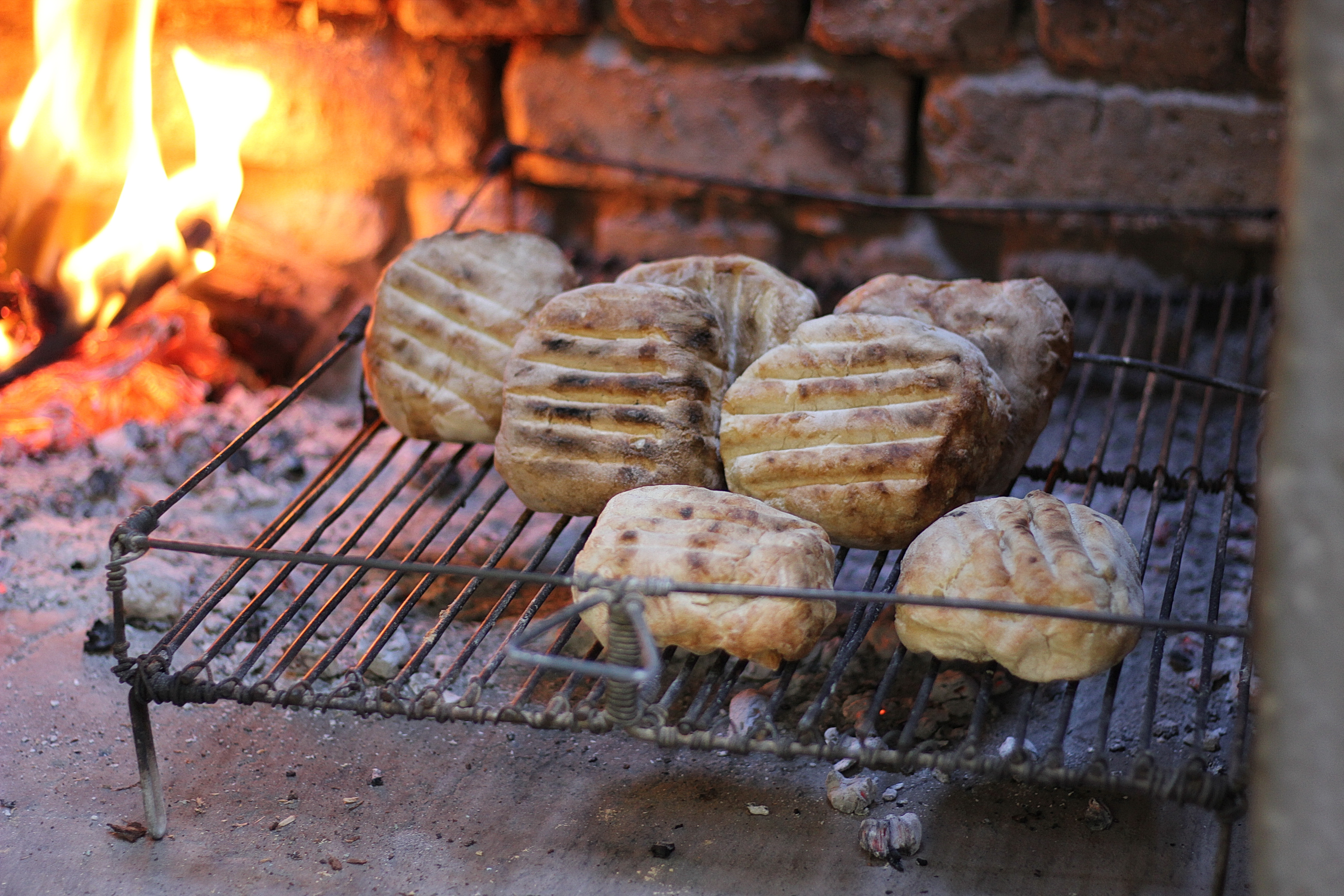
The traditional roosterkoek – a staple of every Karoo home. (Photo: Chris Marais)
The South African model offers home bakers a way of grouping together to earn money and minimise overhead costs.
Typically, each tuisnywerheid is made up of a number of home-based entrepreneurs who offer everything from rusks, koeksusters, pies and cakes, to farm-fresh veggies, flowers, olive oils, jams, preserves and ginger beer. They all pay a portion (between 10% and 35%) to cover costs of shop rental and often use their combined buying power for the best prices on crucial ingredients like flour, sugar, eggs and packaging.
There is no advertising and no branding. But each member is allocated a number, and buyers quickly learn who makes the carrot cakes, pies or rusks they love the best. It’s all about word of mouth and consistency in quality.
Home industries and home bakers are also remarkable for the hidden knock-on effect in entrepreneurship, training and sheer quantities of ingredients bought.
Food journey beginnings
Food has a way of reaching out and changing lives. When he worked in Cape Town, Maswazi started a vetkoek stand in Gugulethu. It was a huge success, but what to do when he’d decided to return home to the Eastern Cape?
One of his most regular fans was a security guard who dreamt of becoming a chef. Maswazi gave him the recipe, entrusted him with the pots and equipment, and the security guard changed his life completely, making enough to get married and send his new wife to hospitality school.
Ellen Taks also worked for years in Cape Town after growing up on a farm near Cradock. Now 68, she spent most of her early baking life at the side of Marita Smuts, who supplied three home industries in the City Bowl.
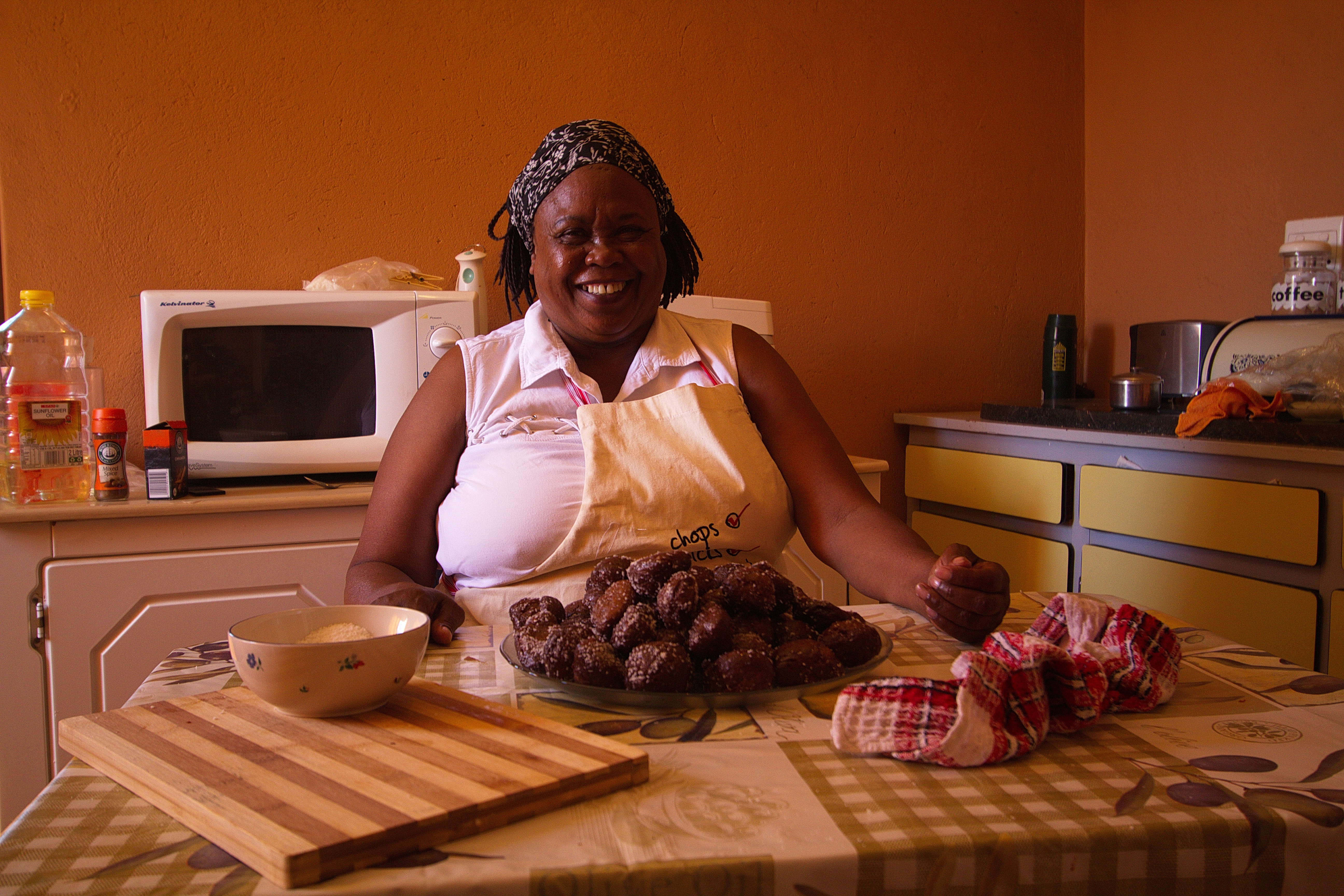
Home baker Ellen Taks loves rising early to make the goods she’ll sell that day – like these Malay-style Koesisters, delicately flavoured with mixed spice and cinnamon. (Photo: Chris Marais)
Read more in Daily Maverick: Moving to the Platteland: The magic of small-town living
“We would be up at 5am, and often we’d only get to bed by 11 that night, absolutely exhausted. There was no time to have a family. But if I had to live my life over, I’d do it all again. I loved it! We’d mix and bake side by side, then Marita would go and deliver, and I’d start mixing the next batch.”
When Marita retired, Ellen returned to her hometown of Cradock and simply carried on baking. She gets a government pension but says: “How can you just live on that? It just pays for the power, water and taxes.”
She can be found most days at the Crazy Store side of the Spar centre, with a bucket full of baked goods and a basket full of fudge. Her regular clients know just where to find her, especially on Saturdays when she brings in her special Malay koesisters, which the locals simply call doughnuts.
Powerhouse bakers of Cradock
Rika and Vossie de Vos are recognised as the powerhouse bakers in Cradock. This is what they do full time, with no other form of income except the stipend Vossie receives for his work as koster (verger) of the Moederkerk.
Before they moved from Knysna to Cradock in 2007, they first scouted out Dit en Dat to see how it worked and whether there would be scope for what they baked.
“We saw there was great potential.” The De Vos offerings (number 9) are among the most popular in Dit en Dat.
“I’m not sure why that is,” shrugs Vossie. “I think because we make it with love.”
The beloved koeksuster
It is the humble koeksuster (also spelt koeksister but quite different from the spicier koesister) that has done more to free South African women from budget woes than any other kitchen offering – except perhaps for fudge.
The dough (there always seems to be a family or secret recipe) is twisted into its characteristic plaited shape, fried in sunflower oil and immediately dunked into ice-cold sugar syrup.
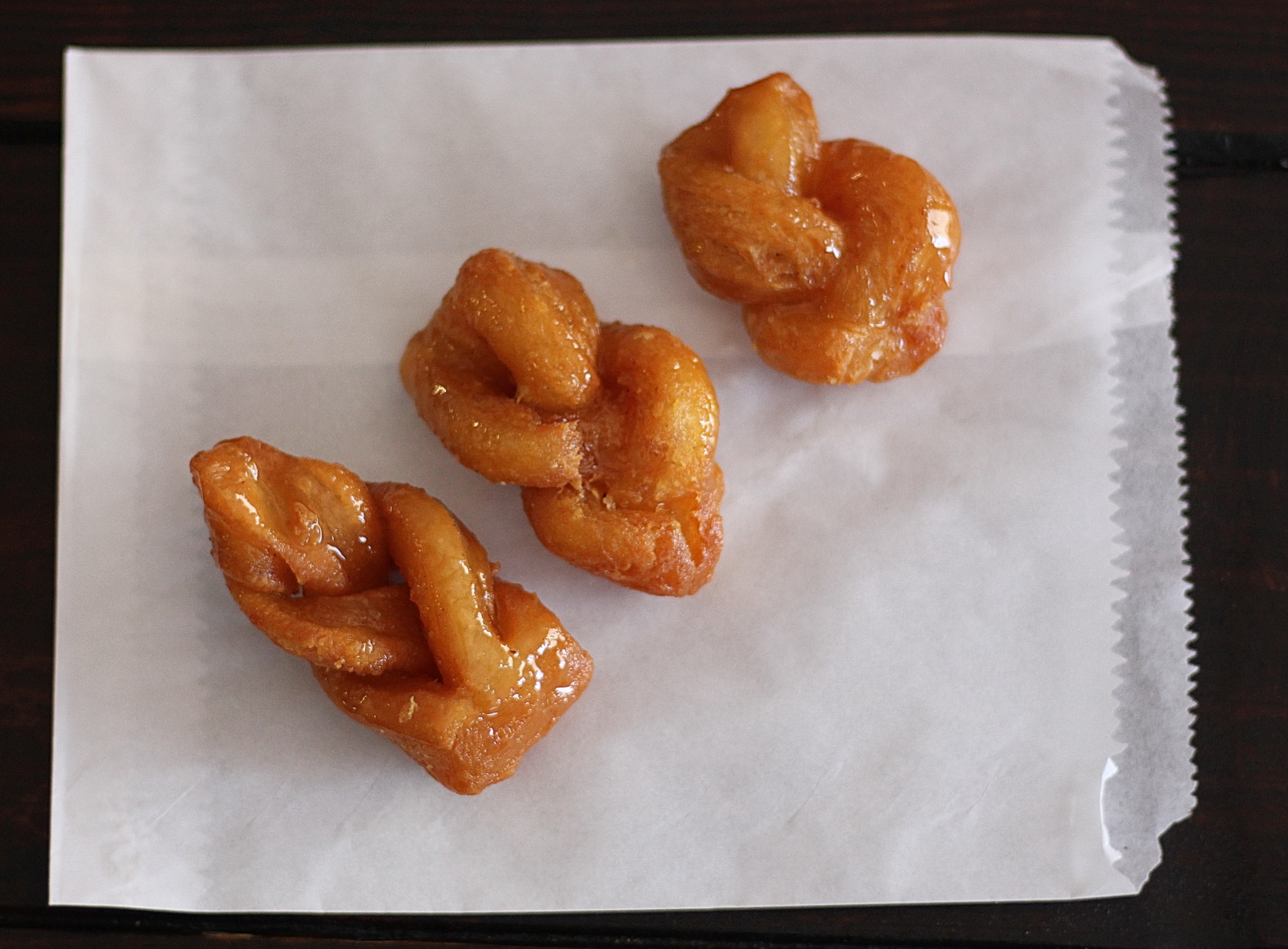
Three koeksusters: the start of an in-house home industry. (Photo: Chris Marais)
Up in the far reaches of the Northern Cape, Brandvlei’s koeksuster queen, the late Jaci Farrell of Casablanca Guesthouse, once gave me the magic financial formula for them:
“For every R3 of costs,” she explained, “you can make a turnover of around R10. Their other advantage is that they freeze well and can keep for months.”
Jaci used to fund long road trips across the country and Namibia with her koeksusters, adapting them occasionally by adding Schnapps to the sugar syrup (“for dronk-sisters”) or dipping them in melted white chocolate.
All over the platteland you’ll encounter stories of women who have sold enough koeksusters to send children to university, bought cars with the money, saved up enough for bucket-list trips, paid back student loans or simply added to a pension. DM
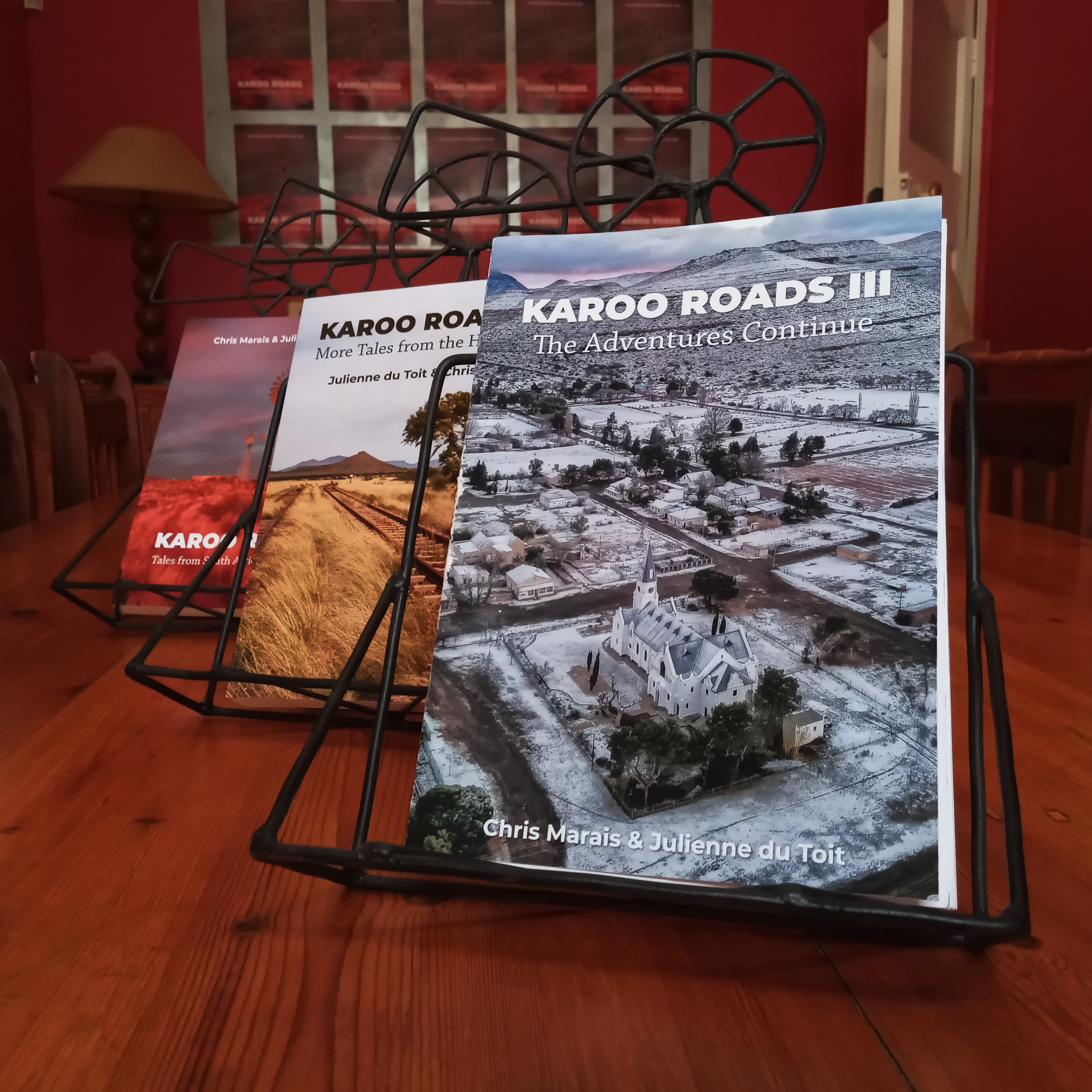
Get the Three-Book Special of Karoo Roads I, Karoo Roads II and Karoo Roads III (illustrated in black and white) by Julienne du Toit and Chris Marais.
For an insider’s view on life in the Karoo, get the Three-Book Special of Karoo Roads I, Karoo Roads II and Karoo Roads III (illustrated in black and white) by Julienne du Toit and Chris Marais for only R800, including courier costs in South Africa. For more details, contact Julie at [email protected]



















 Become an Insider
Become an Insider
Nice article but its spelt koeksister.
From the article above: ” …..Malay-style koesisters (different in spelling, shape and flavour from the plaited koeksusters)”
Koesuster is correct. A koeksister is plaited and deep fried for a crispy outside, the koesister is softer and made with cinnamon, traditional mixed spices, and aniseed